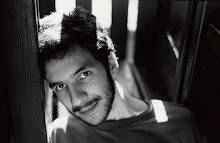The Apocalypse came and the dead rose from their graves, but there was no Messiah.
So begins the plot of Kingdom of Ten Thousand Years, which Faye recently lent me. What remains after this resurrection-without-redemption is an extremely difficult politics as groups with entirely different understandings try to live in society alongside each other. Germanic tribes struggle to adjust to a world far too crowded for their migratory way of life. Renaissance thinkers leave tight-knit neighborhoods of their century's former inhabitants and wander through the cities, trying to take everything in. Ancient African nobles try to use their influence over former subjects to get nice jeeps and build McMansions.
Initially, twenty-first century governments stay more or less intact, but the issues of how to accommodate the extra billions of people reveal deep-seated differences between different segments of the never-dead population. How many inhabitants should an overcrowded Europe be allowed to send to America? How much religious freedom should be granted to the often shocking faiths of the past? Should divorces be handled according to the customs of the couple in question's time and place, or should society have one standard divorce law? And what about language--is there room in England for schools to teach Old English?
As the newly risen begin to adapt to the new system, vote, and attempt to assert their influence, the conflicts between centuries eclipse many old and bitter conflicts between contemporaries. Old rivals like the Medicis and Strozzis, for example, drop old differences to work together in defense of their worldview. Lancaster and York, Mughals and Marathas, likewise see each other in a new light. Twenty-first century U.S. Republicans and Democrats begin to feel they have more in common with each other than they had ever thought possible before, and that have hard feelings for the nineteenth-century versions of their parties, and some progressively serious differences with many of the Founding Fathers. Trust between these different factions erodes quickly as levels of violence increase...
The story that eventually unfolds is one of increasingly repressive and brutal autocracy by the natives of the present and their allies in the face of a thousand challenges from the past. But it reads as particularly poignant because as a twenty-first century reader, you tend to side with the never-dead in the book. How are they supposed to react when the standard levels of domestic violence in medieval ghettos escalates into a pattern of murders of wives and daughters who try to leave? And how are they supposed to react when virulently anti-Semitic Christian extremists from the early Reformation period assassinate a Jewish scientist as part of what turns out to be a plot to get their hands on a nuclear bomb?
This is one dark and wild ride through the future into a churning mess of the past.
Reading at Writ & Vision Thursday
-
I'm going to be doing a reading at Writ & Vision in downtown Provo at 7 pm
this Thursday.
I'm excited: I love to read my work, but I don't actually do so v...
6 years ago

After I read that book, I got the impression that one of the underlying themes was that people from all generations face the same problems in interpersonal relationships. I suppose that's what the author discovered after doing the research necessary to accurately depict all those different cultures.
ReplyDelete